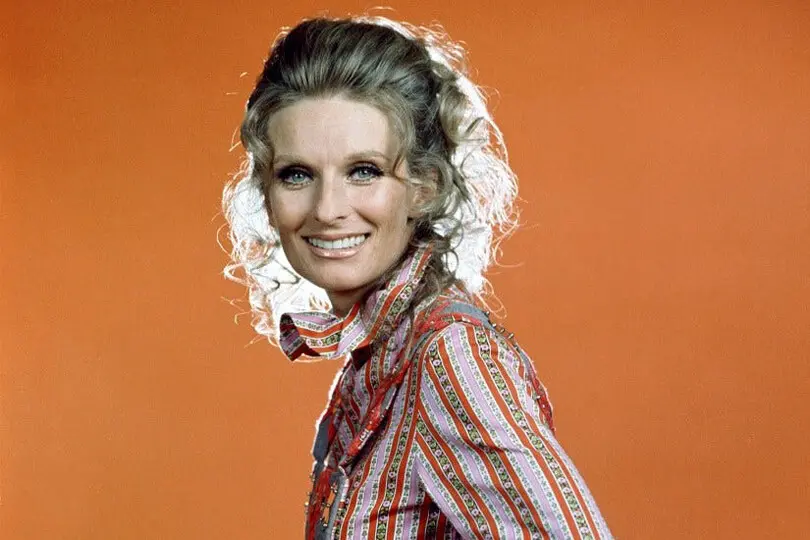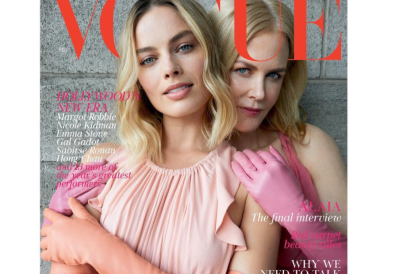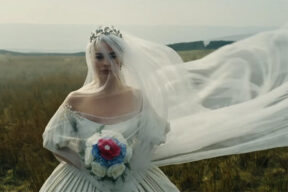By Anne T. Donahue
I grew up watching The Mary Tyler Moore Show. Thanks to syndication (and how perfect the show was, is, and will always be), my mom and I would camp out in front of WTN every Friday evening and I’d live vicariously through Mary and Rhoda, their wardrobes, and their amazing-seeming adult lives.
But never Phyllis. I hated Phyllis. Phyllis – played by the late, brilliant, incredible, hilarious Cloris Leachman – embodied the things I did not want to be. She couldn’t take social cues. She had a freakish amount of self-confidence that bordered on narcissistic. She didn’t listen. She was delusional about the realities of her life. She made a big deal out of everything that wasn’t, and played down everything that mattered. She was impossible! Who’d want to be her? Not I, an eight-year-old in suburban Ontario, well-aware that I was destined to be Rhoda (or at least a 20th century version of her). Phyllis Lindstrom was terrifying to me – how did she even have any friends?
Of course, it’s a testament to Cloris Leachman’s talents that she was able to create a character so complicated and so inherently human. Especially since as an adult, I’ve come to see that Phyllis wasn’t bad or mean or anything other than kind of annoying sometimes, especially since out of everybody on the show, she was the one who was most brazen in her personality. (Outside of Ted. But Ted is an entity and essay unto himself, and man alive, we do not have time to unpack all of that in this moment.) In fact, I feared becoming somewhat like Phyllis because I knew the odds of that happening were forever in my favour. And to be so bold and so Phyllis-like was terrifying: she’s just so much person.
And she was fine with it. How dare she!
But there was nothing actually wrong with Phyllis. Sure, she was abrasive, she moved through the world with a sense of superiority, and she projected her own insecurities onto her friends (as a means of deflecting away from her own vulnerabilities), but she was loyal. She was honest. She wore incredible seventies prints, and she at no point pretended she could make a decent pie. In fact, the older I get, the more I like Phyllis. I like her belief in self, her brazenness, her tendency to walk into somebody’s apartment without even really knocking. I like her big dreams and refusal to acknowledge reality while trying to achieve them. And I adore her sense of humour and the perfection in which it’s executed. Phyllis, like all of us, contains multitudes. And while in some ways she seemed almost like a caricature, in most ways she a refreshing dose of reality. Because hi: who among us doesn’t maneuver through life believing we’re the heroes of our own stories? Contrary to proof that at best, we’re just characters bouncing from circumstance to circumstance and bumbling through lives we thought might be a little less of a gong show? Often with as less bouncy hair.
So with the loss of Cloris Leachman, I do feel the need to offer Phyllis my apologies. I disliked her so much because she was played so well, with Cloris infusing this woman with so much heart that despite any and all frustrations I had with Ms. Lindstrom, I think of her not just as a crucial component to The Mary Tyler Moore Show, but to pop culture in its entirety. Now, in my thirties, I don’t mind seeing myself in Phyllis. Because it means I also get to see myself a little bit in Cloris Leachman. And imagine being so talented, so incredible, and so special. Imagine being such a force that decades after one performance, the character you’ve created is only beloved more and more.
Need a little more Anne? Read more from Anne T. Donahue right here!













Hey, as someone who actually sees a little of himself in Ted Baxter sometimes (scary, I know) I totally get it. Tbh Phyliss is actually one of the funniest characters after Ted and Sue Ann and it’s surprise that those three are such breakouts because there’s just something about such flawed characters we can all relate to the most.